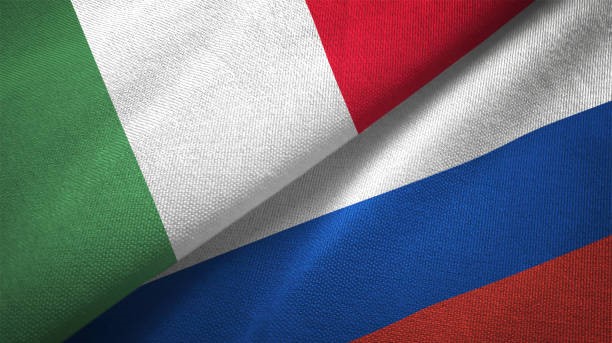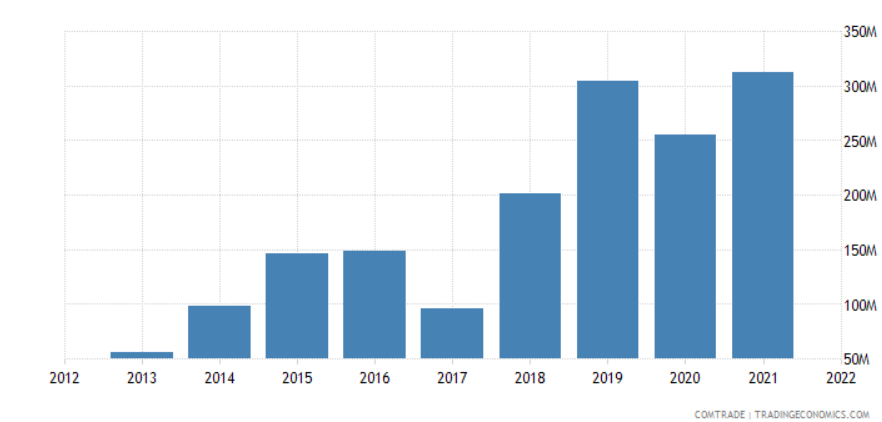

The Russian and Italian governments have shared a long-term partnership. A significant role has been played by Italian architects in the development of St. Petersburg, the Russian port city on the Baltic Sea.

It was not until February 1924 that direct relations were officially established. In October 1944, full diplomatic relations were reestablished between the two nations after a period of tension. As the Russian Federation emerged in the 1990s, economic and trade ties were strengthened, culminating in a friendship treaty.
From 1991 to 2014, the relationship between the Russian Federation and Italy experienced a positive trajectory, marked by an upward trend. In the ensuing years following 2014, a significant paradigm shift occurred, reaching a critical juncture in March 2018. Despite these transformative developments, discernible continuities persisted in trade, cultural, and political relations.
At the onset of the geopolitical crisis between Ukraine and Russia in February 2022, Italy unequivocally denounced Russia and formally declared its support for Ukraine. Furthermore, Italy aligned itself with the Western nations in implementing economic sanctions against Russia.
Russia has designated all members of the European Union as "unfriendly countries," leading to a notable escalation in sanctions and counter-sanctions. This heightened state of affairs has resulted in substantial impediments to business development, accompanied by a discernible reduction in high-level contacts and meetings. In spite of these challenges, diplomatic relations between Russia and Italy remain operational and have yet to reach a critical point.
In 2021, Russia's aluminium exports to Italy amounted to a total of US$312.01 million, as per the data available from the United Nations COMTRADE database on international trade.

Over the past three decades, collaborative efforts between Russia and Italy have achieved significant milestones in various sectors in Russia. This includes the successful completion of civil aircraft and helicopter construction projects, as well as the modernization of rail transportation. The partnership has also enhanced safety and traffic management, fostering cooperation in railway operations, transportation, and logistics. Notable achievements encompass the reconstruction, equipping of highways, and completion of the Adler-Krasnaya Polyana railway.
In recent decades, a resilient energy collaboration grounded in commercial imperatives has evolved as a central trade dynamic between the Russian Federation and the Italian Republic. A significant milestone in this trajectory occurred in 2006 when ENI and Gazprom formally agreed to construct the South Stream pipeline. Subsequently, throughout the second decade of the 21st century, the collaboration between Moscow and Rome has remained dynamic, with a focus on active engagement in developing low-emission energy technologies and the modernization and expansion of transportation and distribution networks.
A noteworthy development occurred in 2009 with the signing of a memorandum of understanding, laying the foundation for cooperation between the two nations in the realms of energy efficiency and renewable resources. Subsequent agreements, such as the strategic collaboration between ENI and Rosneft in 2012 for the development of Russian fields, the establishment of Lukoil's presence in the ISAB refinery in Sicily in 2013, and various accords in 2016, including the collaboration between Rosneft and ENI in the Black Sea, exemplify the discernible upward trajectory of cooperation in the energy sector between Russia and Italy.
Furthermore, Italy's energy landscape has witnessed active participation from Enel, particularly in the electricity sector. This multifaceted and evolving collaboration underscores the strategic and enduring nature of the energy partnership between the two nations.
In a recent move, the European Commission proposed its 12th package of sanctions against Russia, receiving a cautious welcome from the European Aluminium. Mario Conserva, Secretary General of Face (European Federation of Aluminium Consumers), stated regarding the package, "The addition of aluminium products to the proposed 12th sanctions package is a big mistake and shows that the EU has no strategic compass. A measure that will not accelerate the end of the war in Ukraine but instead will further redirect much-needed low-carbon Russian supplies to China and other competitors and increase market anxiety, thus contributing to price increases that will put hundreds of European companies at risk of closure."
Conserva reports that aluminium has faced an intense and sustained lobbying effort from rivals of Russian producers and certain industry associations. Consequently, it was ultimately incorporated into the European Commission's proposal for the 12th EU sanctions package.
"We have the feeling that, under pressure," FACE's Secretary General continues, "there was a desire to add aluminium to the Commission's new proposal at all costs, even without taking into account those unintended consequences that are far more dangerous/complex than energy inefficiency. I hope that the EU member states and the Commission will think carefully before opening another Pandora's box within our vast sanctions arsenal, this time doing more harm than good to our industrial strength and decarbonization efforts, the two pillars of President Von der Leyen's stated goal of making the EU' the world's first sustainable power."
As of 2022, Russia continues to be the largest supplier of aluminium wire rods to the EU. The country accounted for over a third of the EU's aluminium wire rod imports, totalling nearly 71,000 tonnes. Among the major importers are Poland, Spain, and Italy.
The economic synergy between Italy and Russia is predicated upon the intrinsic complementarity of their respective economies. Italy, reliant on imports for 95 per cent of its gas consumption, establishes a critical dependence on external sources, with Russia prominently positioned as a key supplier. Furthermore, numerous Italian companies maintain a substantial and enduring presence within the Russian market, underscoring the depth and resilience of the economic ties between the two nations.
Responses








